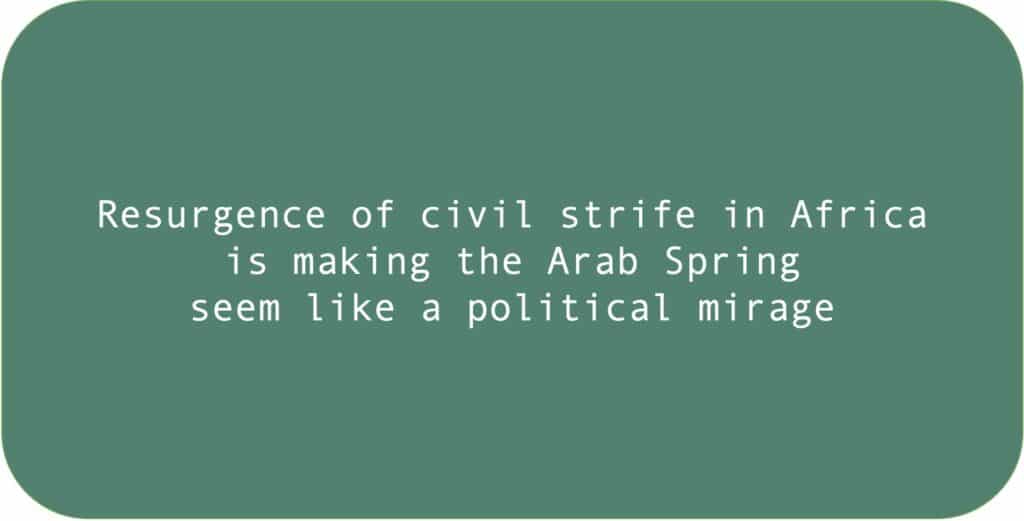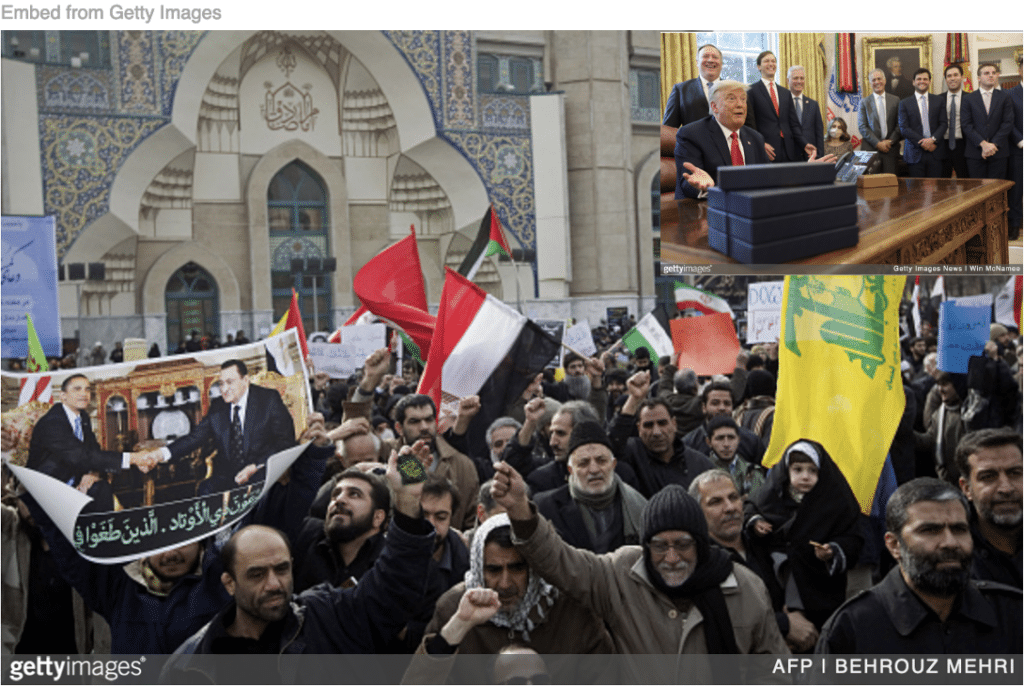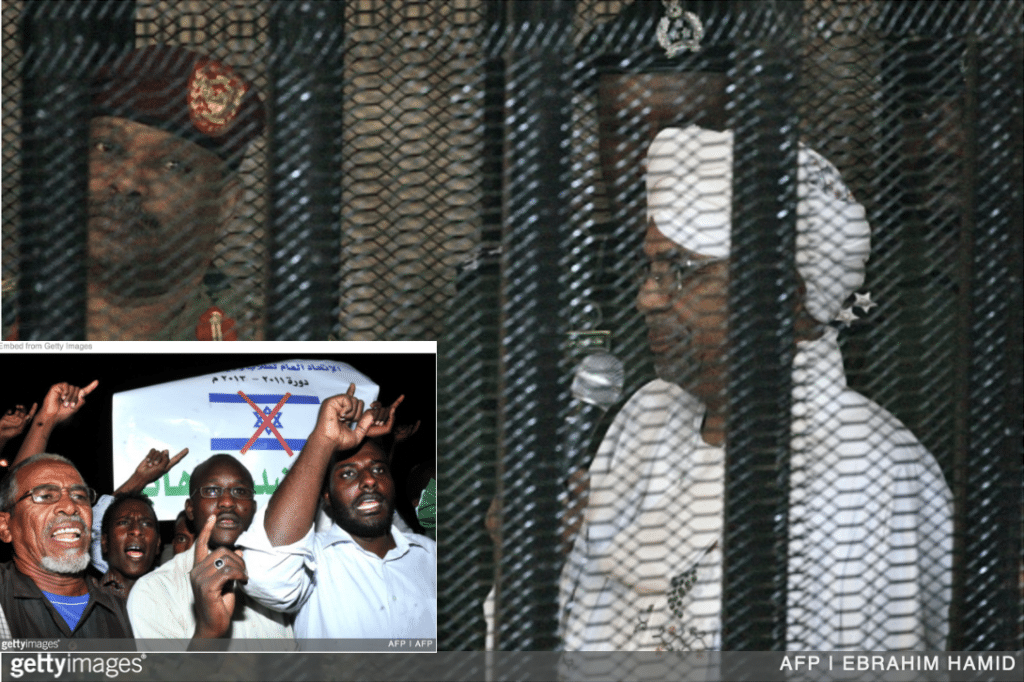
Sudan’s pro-democracy protesters celebrated the ouster of strongman Omar al-Bashir eight weeks ago. However, in doing so, they demonstrated the same naiveté as Egypt’s pro-democracy protesters when they celebrated the ouster of strongman Hosni Mubarak eight years ago.
I published a commentary titled “Aping Egypt’s Ouster of Mubarak, Sudan Ousts Bashir” on April 17, 2019. In it, I admonished Sudan’s protesters to beware of the backlash that befell Egypt’s. But I fear history is repeating itself. Sudan’s Arab Spring is withering away.
Sudan’s security forces stormed a major protest camp in the nation’s capital of Khartoum on Monday, killing an estimated 31 people and wounding hundreds, protest organizers said, in a day of violence that plunged the country’s once-hopeful revolution into chaos and uncertainty. … The Western calls for nonviolence were likely outweighed, however, by the tacit support that wealthy Gulf countries and other Arab allies have given to Sudan’s generals since the protests toppled Mr. al-Bashir.
The rulers of Saudi Arabia, the United Arab Emirates and Egypt view the popular revolution in Sudan as a dangerous example to their own countries, where the Arab Spring revolt of 2011 was either quashed or never allowed to take root.
(The New York Times, June 3, 2019)
Fear of Arab Spring spreading
Sudan’s security forces seem determined to quash this revolt. The fear of revolutionary contagion is existential.
Indeed, that fear explains why China is reportedly mentoring Sudan. And China can boast dubious expertise in this regard. Of course, the highlight is how it quashed a revolt in Tiananmen Square.
June 4 marked the 30th anniversary of that brutal crackdown on China’s pro-democracy protesters. The coincidence speaks volumes.
Hapless calls from Western countries
Sudan’s leaders are ignoring Western calls for nonviolence. They have no fear of Western reprisals. And that’s thanks to China’s existential interest in their survival.
That dynamic reflects the geopolitical shift afoot: Developing nations are looking away from Washington towards Beijing. And they are doing so for economic assistance, political guidance, and alliance.
This dynamic compels me to refer to “‘All the World Is at War‘ Hardly Means World War III” on November 30, 2015. In it, I warned that developing countries are in for a rude awakening. Because, if European nations looked to Xi’s China instead of FDR’s America to stop the Nazis during WWII, Europe would be a fascist paradise today (i.e., free of Jews, blacks, and gays).
Wither American leadership
Ironically, the United States is not among the nations making those Western calls the Times mentioned. Its conspicuous silence might stem from the precedent set by former President Barack Obama.
He offered Egypt’s pro-democracy protesters “indispensable” guidance. But it proved so flawed that Egyptians are now living under a dictatorship that is far worse than the one they sprang up to overthrow.

Moreover, just as I did with Sudan’s pro-democracy protesters, I warned Egypt’s that it would be thus. Among other things, I cautioned that relying on a military coup to usher in democracy is fated to disappoint.
But now President Trump is offering Sudan’s pro-democracy protesters nothing but salutary neglect. He feels no duty (and sees no reason) to side with, let alone guide, them. (The same goes for pro-democracy protesters in Algeria and Hong Kong – whose struggles Trump probably does not even know exist.)
Instead, Trump is tweeting commendations to strongmen like Egypt’s Sisi and Turkey’s Erdogan. Perversely, they have cracked down on pro-democracy protesters, respectively, in ways you’d think only Russia’s Putin and China’s Xi would commend. Unfortunately, this is just the latest manifestation of Trump’s norm-busting presidency.
Media complicity in ignoring Sudan
I’d be remiss not to chastise the media for providing cover for Trump’s disinterest in Sudan’s pro-democracy protesters. You need only juxtapose the scarce media coverage of their protests with the considerable coverage of Hong Kong’s pro-democracy protests.
It’s noteworthy that the protests in Sudan have tolled over 120 dead, over 700 injured, over 50 raped, and countless arrested. By contrast, the protests in Hong Kong have tolled only one dead (from an accidental fall) and fewer than 75 injured.
Remember Darfur?
I have mixed emotions as I march (virtually) in solidarity with Sudan’s pro-democracy protesters. I decry the way Janjaweed militiamen are quashing them.
But I am mindful that these same Arab protesters remained silent when the Janjaweed were killing over 300,000 of their black/African brothers, raping even more of their black/African sisters, and kidnapping countless black/African children nearby in Darfur. Not to mention the hundreds of thousands these Janjaweed militiamen displaced.
Frankly, you’d be hard-pressed to find anyone in Khartoum who protested the genocidal ravaging and plundering of Darfur more than I did. I refer you to commentaries like “Thanks for Caring, America, but You’re Already a Genocide Too Late” on March 14, 2006, and “Save Darfur Rally: Full of Sound and Fury Signifying Nothing!” on May 2, 2006.
I am also mindful that far too many Arab Sudanese stood by as the Arab government they are now protesting against “cleansed” Christians and other non-Arabs from their midst. The civil war this triggered became so intractable that it led to the creation of a completely separate country for the non-Arab Blacks in 2011, namely South Sudan.
The International Criminal Court of Justice
To be clear, I blame Bashir above all for the genocide in Darfur and ethnic/religious cleansing in Khartoum. That’s why, by forcing his ouster, Sudan’s pro-democracy protesters have mitigated my condemnation.
But I am dismayed that they have already exacted more justice for Bashir’s crimes than the International Criminal Court managed to do.
I have commented on the ICC’s fecklessness in many commentaries. They include “Alas, ICC Charging President of Sudan with Genocide Means Nothing” on July 15, 2008, “Arresting Bashir? A Pipe Dream” on March 5, 2009, and “Abetting Sudan’s Bashir Betrays All That’s Wrong with African Leaders” on June 17, 2015.

Still, continuing the fateful Egyptian symmetry, Sudan’s pro-democracy protesters risk seeing Bashir end up like Mubarak – released with a golden parachute in due course. That’s because they failed to exact justice the way Libya’s pro-democracy protesters did. And that, of course, was by summarily executing strongman Muammar Gadaffi.
Of course, Bashir could end up like Egypt’s Morsi:
Mohamed Morsi, Egypt’s first democratically elected president, collapsed in court and died Monday while facing trial, prompting supporters and human rights activists to demand an impartial probe into his death.
(The Washington Post, June 17, 2019)
Sure enough, I presaged his fate. I refer you to “Egypt Sentences Morsi to Death; Exposes Fecklessness of US Mideast Policy” on May 20, 2015. Because in it, I posited that Morsi seemed fated to become a martyr for the cause of democracy in the Middle East.
In any event, I shall continue to stand with the people of Sudan who are yearning to breathe free.
Note on South Sudan
Tribalism and dysfunction have beset Africa’s newest state, South Sudan. I have bemoaned this in too many commentaries to list. For an overview of its ongoing civil war, I refer you to “South Sudan: Africa’s Newest Nation Repeating Old Mistakes,” June 4, 2018.
Frankly, only forlorn hope remains for peace. The country’s president, Salva Kiir, and opposition leader, Riek Machar, have made repeated pledges to form a unity government. But that unity now seems like a pipe dream.